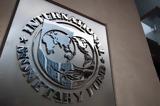New IMF Study Reveals Wealthy Nations Face Greater Economic Risk from Climate Change
Using advanced econometric techniques, the study finds that temperature shocks account for a significant share of economic fluctuations in advanced economies.
A new study from the International Monetary Fund is reshaping the debate on climate change's economic impact, suggesting that colder and wealthier countries
The paper, A New Perspective on Temperature Shocks, authored by Nooman Rebei, challenges the conventional belief that climate change primarily harms poorer, hotter countries, arguing instead that advanced economies could experience significant economic losses due to permanent shifts in temperature.
The research differentiates between temporary weather fluctuations and long-term climate changes, finding that while richer nations tend to adapt better to short-term variations, they face greater challenges in dealing with lasting climate shifts.
Using advanced econometric techniques, the study finds that temperature shocks account for a significant share of economic fluctuations in advanced economies.
Under the most severe warming scenario, these nations could see an average GDP loss of six percent by 2100, whereas emerging and developing economies may experience a more moderate decline of around one percent. This runs contrary to the widely held assumption that poorer countries, particularly those in hotter regions, will bear the brunt of climate-related economic damage.
The study highlights that historically colder regions, such as the United States, Canada, and the Nordic countries, have experienced more rapid temperature increases in recent decades.
Alongside these rising temperatures, these nations are also seeing a greater frequency of extreme weather events, including storms and wildfires, which are contributing to increased economic strain.
The findings suggest that the economic damage caused by climate change in wealthier countries is largely driven by the scale of permanent temperature shocks, rather than just temporary disruptions.
Beyond the economic effects, the study also examines the role of major greenhouse gas emitters, including the United States, China, and Germany. In some cases, it finds that economic activity in these countries contributes to emissions that, in turn, accelerate climate change, creating a self-reinforcing cycle of economic risk.
While China’s economy appears to benefit slightly from some temperature shifts, the study notes that nations like Germany and Brazil are facing heightened economic risks when factoring in the reverse relationship between emissions and economic performance.
#ENGLISH_EDITION #GREECE- Δημοφιλέστερες Ειδήσεις Κατηγορίας Ειδήσεις
- Ανάρτηση Κούγια στο "Χ" για την κατάσταση της υγείας του - Τι γράφει
- «Μου την πέφτεις;» – «Παρεξήγησες αγάπη μου»: Ο on air διάλογος ανάμεσα σε Σταύρο Μπαλάσκα και δημοσιογράφο
- Αλέξης Κούγιας: Μάχη για να κρατηθεί στη ζωή - Τα τελευταία νέα της υγείας του
- Πέθανε ο Νίκος Παπαδόπουλος, δημιουργός του Plasticobilism σε ηλικία 46 ετών
- Τέμπη: Αποστάσεις Πιερρακάκη από την "έξαλλη" γραμμή Άδωνι - Βορίδη
- Trump Dismisses Report on U.S. Military Presence in Alexandroupoli
- Φαβορί η Νατάσα Γιάμαλη για την μεσημεριανή ζώνη του MEGA
- Θεσσαλονίκη: Ξήλωσαν καπό και προφυλακτήρα από ΙΧ στην Καλαμαριά
- Στέλιος Κουδουνάρης: Είναι ξεφτίλα κάποιος επειδή είναι γνωστός, να απαιτεί να του δώσω δωρεάν τα ρούχα μου
- Πιερρακάκης για Τέμπη: Η αντιπολίτευση καπηλεύεται μια τραγωδία για να δείξει ότι το μπόι της είναι μεγαλύτερο από ό,τι πραγματικά είναι
- Δημοφιλέστερες Ειδήσεις Dikaiologitika
- Trump Dismisses Report on U.S. Military Presence in Alexandroupoli
- Πόθεν Έσχες: Προβλήματα στην πλατφόρμα λίγο πριν την εκπνοή των δηλώσεων
- John Paulson's Share Sale Sparks Concern Among Piraeus Bank Investors
- New IMF Study Reveals Wealthy Nations Face Greater Economic Risk from Climate Change
- Τι ώρα και πού θα βρέξει σήμερα στην Αττική
- Εκτίναξη της τιμής της ηλεκτρικής ενέργειας στη χονδρεμπορική
- Το πορτοκάλι ή σαγκουίνι έχει τελικά περισσότερη βιταμίνη C;
- Βαθύ το χάσμα παρά την επίδειξη φιλίας Μακρόν - Τραμπ: Οι ειδήσεις της χθεσινής συνάντησης
- Απεργία 28 Φεβρουαρίου: Κλειστά μαγαζιά και δωρεάν μεταφορές διαδηλωτών από ταξί, πώς θα κινηθούν τα ΜΜΜ
- ΓΣΕΕ: Κάλεσμα για απεργία Παρασκευής 28 Φεβρουαρίου

- Τελευταία Νέα Dikaiologitika
- New IMF Study Reveals Wealthy Nations Face Greater Economic Risk from Climate Change
- Βαθύ το χάσμα παρά την επίδειξη φιλίας Μακρόν - Τραμπ: Οι ειδήσεις της χθεσινής συνάντησης
- Trump Dismisses Report on U.S. Military Presence in Alexandroupoli
- John Paulson's Share Sale Sparks Concern Among Piraeus Bank Investors
- ΓΣΕΕ: Κάλεσμα για απεργία Παρασκευής 28 Φεβρουαρίου
- Greece Needs Investments in Energy Storage and Grid Upgrades, Study Finds
- Έφυγε στα 46 του ο Νίκος Παπαδόπουλος: Δημιουργός του «Plasticobilism» και σεναριογράφος γνωστών σειρών
- Ποτάμια οι δρόμοι στο Παλαιό Φάληρο: Έβαλαν κάδους και μπουλντόζα πάνω από σπασμένο αγωγό της ΕΥΔΑΠ
- Έρχεται το νέο Taxisnet με μνήμη... πάνω από έναν αιώνα
- Έρχονται βροχές και καταιγίδες - Ποια μέρα και πού θα είναι έντονα τα φαινόμενα
- Τελευταία Νέα Κατηγορίας Ειδήσεις
- Οπαδοί της Φενέρμπαχτσε πήγαν να κάψουν ζωντανούς φίλους της Γαλατάσαραϊ! (video)
- Τέμπη – Μητέρα Γεράσιμου: «58 είναι τα θύματα και βάλτε τα στη νιοστή – Όπως τον ανάθρεψα, δεν θα γυρίσει πια»
- "Βόμβα" από Ισπανό δημοσιογράφο: "Ο Μέσι σκέφτεται την επιστροφή στην Μπαρτσελόνα"
- Ιωάννα Τούνη για το εξώδικο του Δημήτρη Αλεξάνδρου: «Δεν έχω ιδέα για τι πράγμα μιλάτε»
- Ριάντ: Ξανά στο τραπέζι Ρωσία και ΗΠΑ για την Ουκρανία
- ΗΠΑ: Τραμπ σε Μακρόν – “Περιμένω τον Ζελένσκι στην Ουάσινγκτον να υπογράψει για τις γαίες της Ουκρανίας”
- ΤΡΑΙΝΟΣΕ: συμμετέχει στην απεργία της Παρασκευής με αιχμές για την αντιπολίτευση
- Σύζυγος θύματος στα Τέμπη: «Ξεδιάντροποι οι βουλευτές της ΝΔ, να σηκώσει το ανάστημά της η δικαιοσύνη»
- Ο Τραμπ απαιτεί να ξαναρχίσει η κατασκευή του πετρελαιαγωγού Keystone XL
- Τέμπη: Κάλεσμα συμμετοχής στην 24ωρη απεργία από τη ΓΣΕΕ



